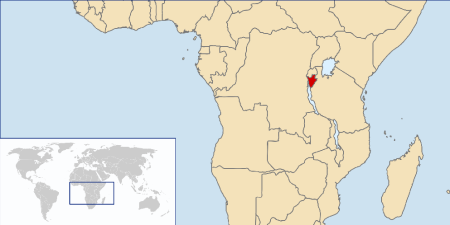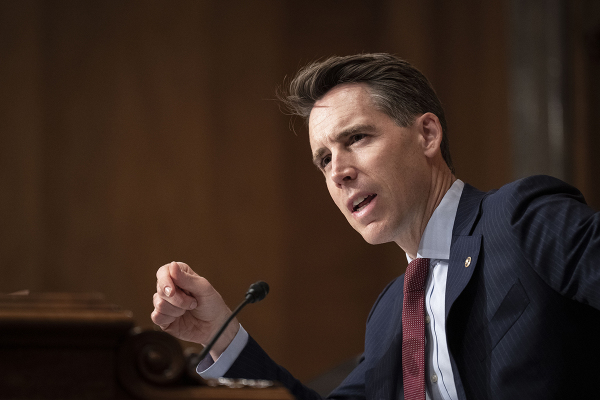23 Adventists arrested in Burundi amid 'systematic religious liberty abuse'

Twenty-three Seventh-day Adventist worshipers in the tiny landlocked Central African nation of Burundi were arrested last week and released days later. The denomination says it is facing “systematic religious liberty abuse” at the hands of the national government.
The denomination rejoiced over the release of arrested members and leaders, including the duly-elected head of the Burundi Union Mission, was secured on Friday after days of pressuring the Burundi government to follow international laws.
“We have received very encouraging news and are happy to indicate that all Seventh-day Adventist detainees in Burundi have been released,” the Seventh-day Adventist Church General Conference headquartered in Silver Spring, Maryland, said in a statement.
“Prayers have been answered. We thank the Government of Burundi for its role and specifically one of its Members of Parliament, Honorable Justin Niyobuhungiro, for facilitating the releases.”
General Conference President Ted N.C. Wilson called for a worldwide prayer initiative in response to the struggle that Adventists in Burundi have faced over the last several months due to the government’s opposition to duly-elected BUM leadership.
The Burundi national government has refused to recognize a BUM leadership change because of its support for the church’s ousted legal representative, Joseph Ndikubwayo, who was removed from the role last year by a committee of the Central and Eastern Africa Division of the Adventist church.
Ndikubwayo was also and stripped of his pastoral credentials by the church he served. AFP reports that Ndikubwayo was accused of embezzling church funds and accepting a position with the government that “contradicts church doctrine.”
The ousted leader, however, has reportedly refused to leave the position and has maintained control of the church’s office with help from authorities.
The church body boasts as many as 186,000 members in Burundi and 21 million members worldwide. It also operates 23 schools and five clinics in Burundi.
In a news release last week, it announced that the 22 members and leaders were arrested on orders of the national government following six months of “illegal interference” in the administration of the Adventist church in Burundi.
Among those arrested was Lamec Barishinga, who was duly elected in November 2018 to serve as president of the BUM. He was arrested on May 10 along with a local field president named Pastor Lambert.
Ganoune Diop, director of public affairs and religious liberty for the Adventist world church, wrote in a commentary that the former leader still occupies the church office with the help of police while duly-elected church officials have not had the “needed access” to church property.
“The coercive nature of this imposition of a leader the Church has removed from his post is not in accordance with the respect due to ecclesiastical institutions,” Diop wrote.
“Empowering and enabling a demoted former church employee is unwarranted and unhelpful. He can no longer in any way represent the Seventh-day Adventist church. His refusal to leave office appears a sabotage of the functioning of the Adventist Church in a country where Adventists occupy positions of responsibility to loyally and wholeheartedly serve their country.”
Diop assured that religious freedom is the “issue which is at the heart of the current crisis.”
“[It] is not only the right to worship according to the dictates of one’s conscience, and the right of religious organizations to conduct their affairs without government interference, but is, at a deeper level, freedom from being harmed, hurt, intimidated, humiliated, persecuted, imprisoned, tortured or murdered,” Diop argued.
“Violence against citizens to make them comply with the preferences of those who govern a country is utterly unethical and inhumane. Peaceful persuasion should always be preferred over coercion.”
An Adventist delegation was sent by Wilson at the invitation of Burundi’s interior minister Pascal Barandagiye to listen to a government proposal on a plan of succession of Adventist leadership. The ultimate goal of the delegation, Diop explained, was to find a way to “end the stand-off regarding who the legal representative is or should be.”
“It would have been simple to accept the church’s proposal to allow the legal representative of the church be the treasurer of the Union, while allowing the duly elected union president to attend to spiritual and administrative affairs of the church entrusted to his care,” Diop wrote. “But the government’s representative we visited in all good faith insisted on his own plan. The situation escalated with the government support of a person removed from his function as a representative of the church.”
“The intransigence of the government seen in dismissing the Church’s proposal to allow the Union treasurer to be the legal representative of the Seventh-day Adventist Church in Burundi has been surprising. It will certainly not aid in maintaining the peaceful cohesion of a country to which the Adventist Church is committed for sustainable development.”
Although the detained Adventists have been released, Wilson continues to call for prayers that God will provide “a helpful resolution” for the challenges facing the Adventist church in Burundi.
Follow Samuel Smith on Twitter: @IamSamSmith
or Facebook: SamuelSmithCP





















